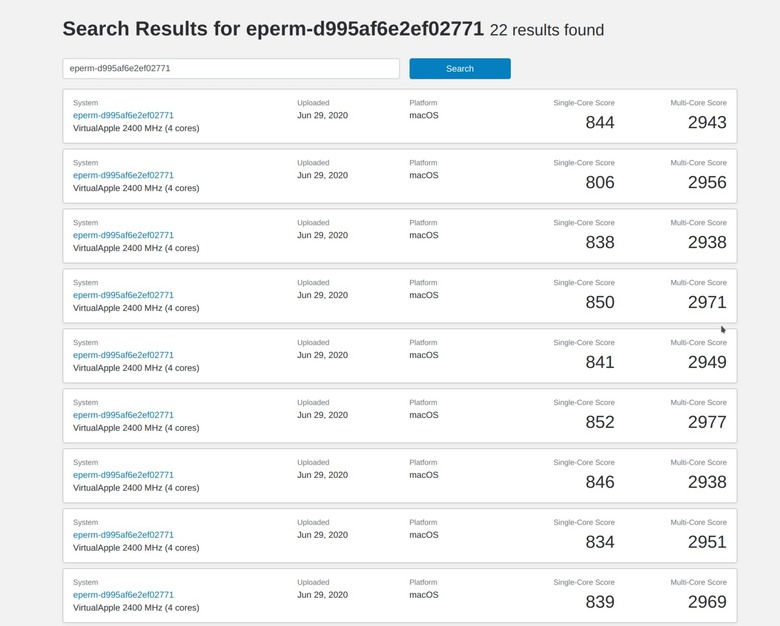Apple Chip In Mac Transition Kit Makes The Surface Pro X Look Bad
Apple's decision to ditch Intel in the long run for its own ARM-based silicon was naturally received with mixed reactions and opinions. While the benefits on power efficiency are almost unquestioned, there have naturally been concerns over performance, especially when trying to support Mac software not yet built for the new chips. There will naturally be a need for some sort of CPU emulation, a piece of software formally known as Rosetta. Emulation incurs some performance penalty but if "accidental" benchmarks are any indication, Mac users might have very little to worry about.
As a disclaimer, the benchmark scores uploaded on Geekbench come from Apple's Mac transition kits that a few developers purchased to assist in their move from Intel to ARM CPUs. These run on an Apple A12Z, a.k.a. the Apple A12 Bionic, that's used on this year's iPad Pros. The chip's design, however, is based on the Apple A12 that was launched two years ago, practically making it a two-year-old chip.

The benchmark notes that the tests were run with the macOS version of Geekbench and its scores are quite close to what the Surface Pro X reached. The latter is Microsoft first and so far only ARM-based Surface computer, designed to showcase its vision for Windows 10 on ARM, specifically a custom-made Qualcomm Snapdragon. While the raw numbers are comparable, the context behind them couldn't be more different.
The Surface Pro X's scores come from its native performance, with the benchmarking tool running as an ARM program. In contrast, the Mac dev kit equivalent is running on top of the Rosetta emulation, which implies it isn't running at full capacity. Popular Apple developer Steve Troughton-Smith put that discrepancy in a less flattering way.
Of course, there are still many factors we do not know about Rosetta or the ARM-based Macs and the latter might even come with a more powerful Apple silicon (Apple A13 Bionic, perhaps?). But if Apple's lowest is already Microsoft's best, then Mac users might not have to worry too much about how disruptive the experience will be, even when running an app via emulation.
